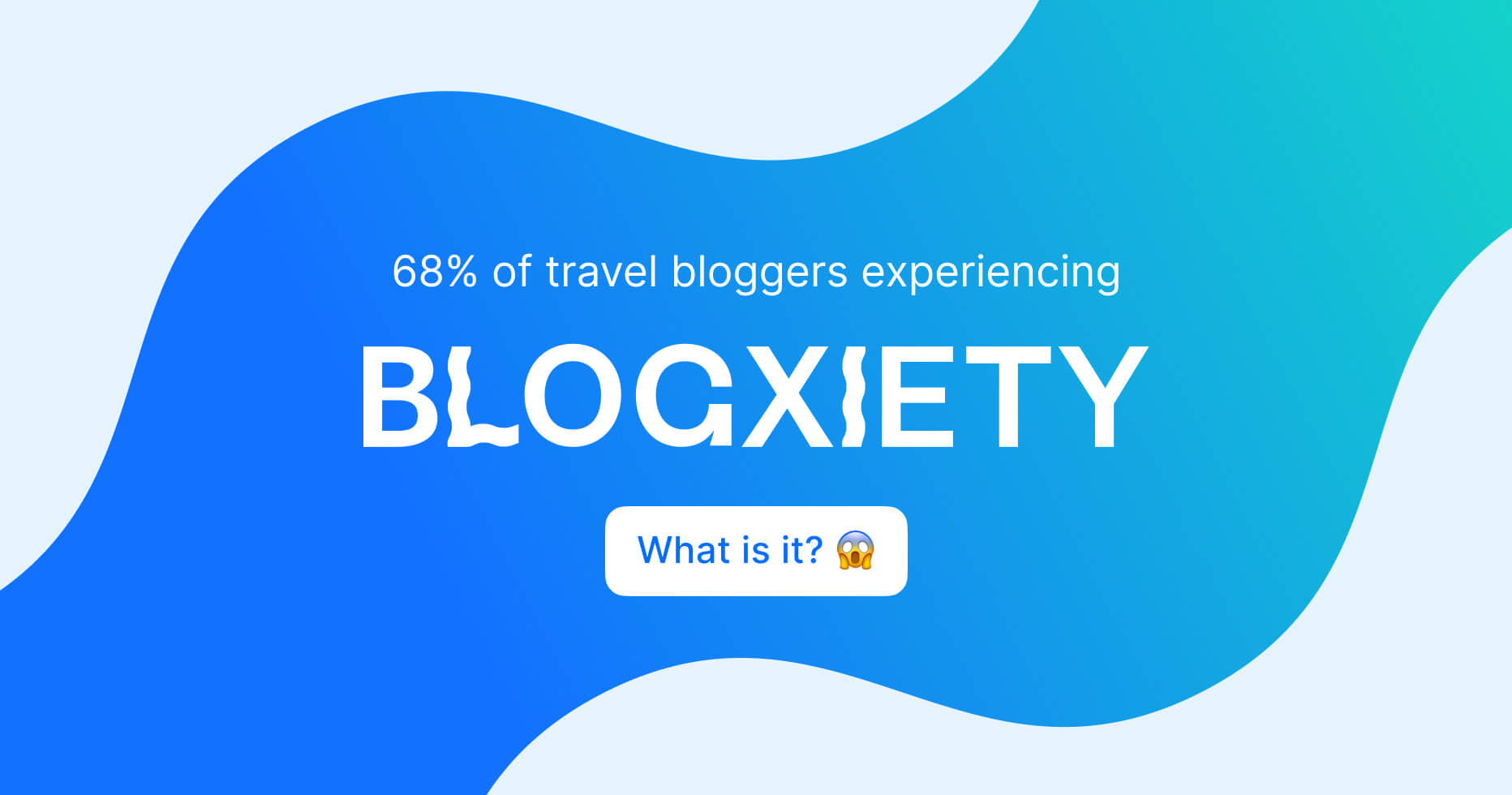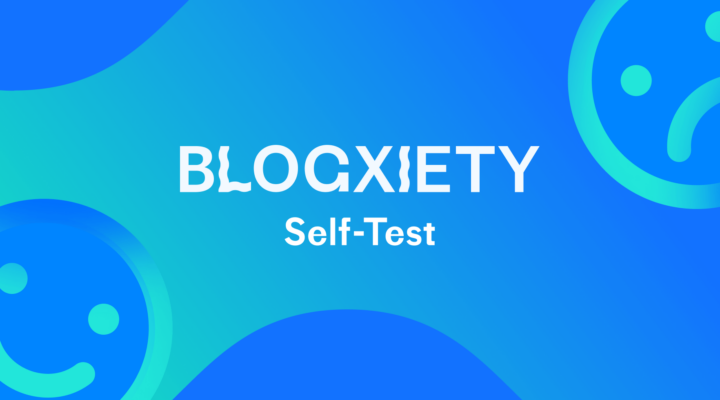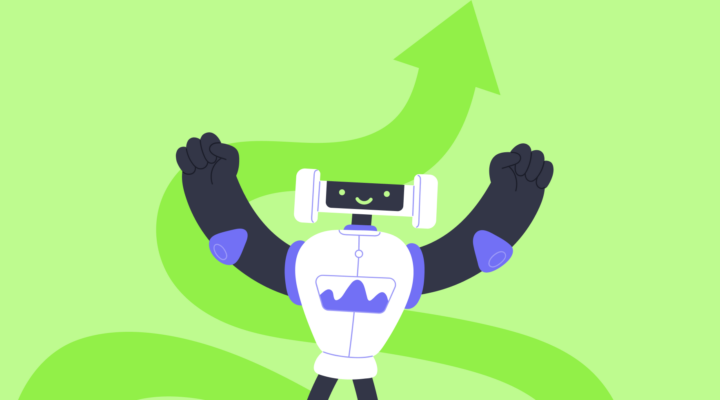What Is Blogxiety?
Being a travel blogger is no walk in the park, despite the glamour. Sure, you knew you’d be chasing content, but dealing with SEO, monetization, and AI competition isn’t what most people signed up for. It turns out that combining wanderlust and well-being is hard work!
It all adds up to what’s been called blogxiety: burnout and stress from blogging, caused by difficulties beyond content creation itself. 68% of travel bloggers experience its symptoms, and one in three has even had thoughts of quitting!
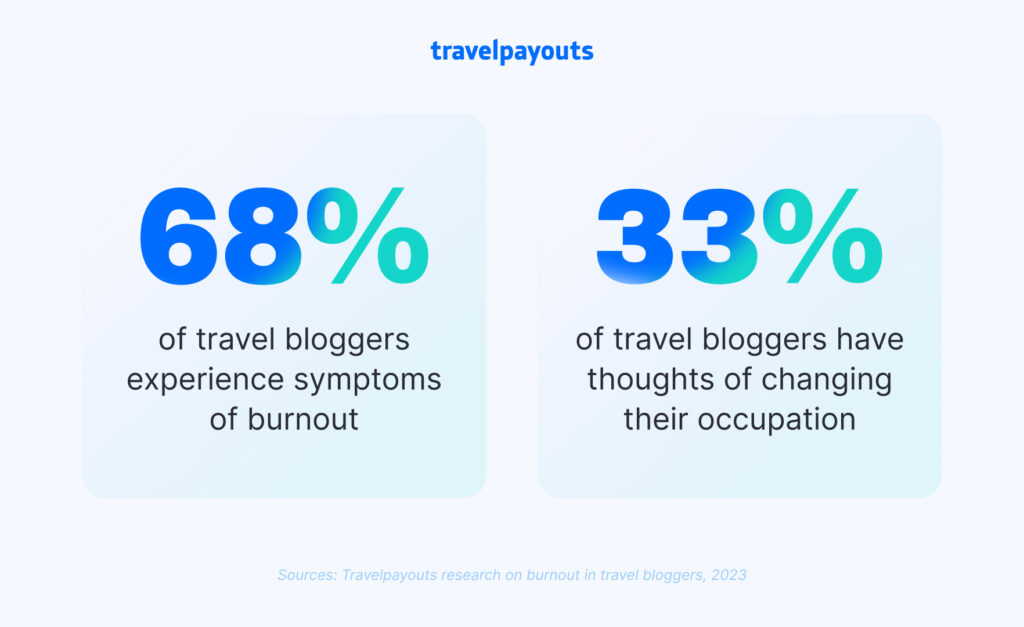
Blogxiety is especially common among bloggers who have been in the profession for several years, but it’s also relevant for those just starting out and those who have been blogging for about a year.
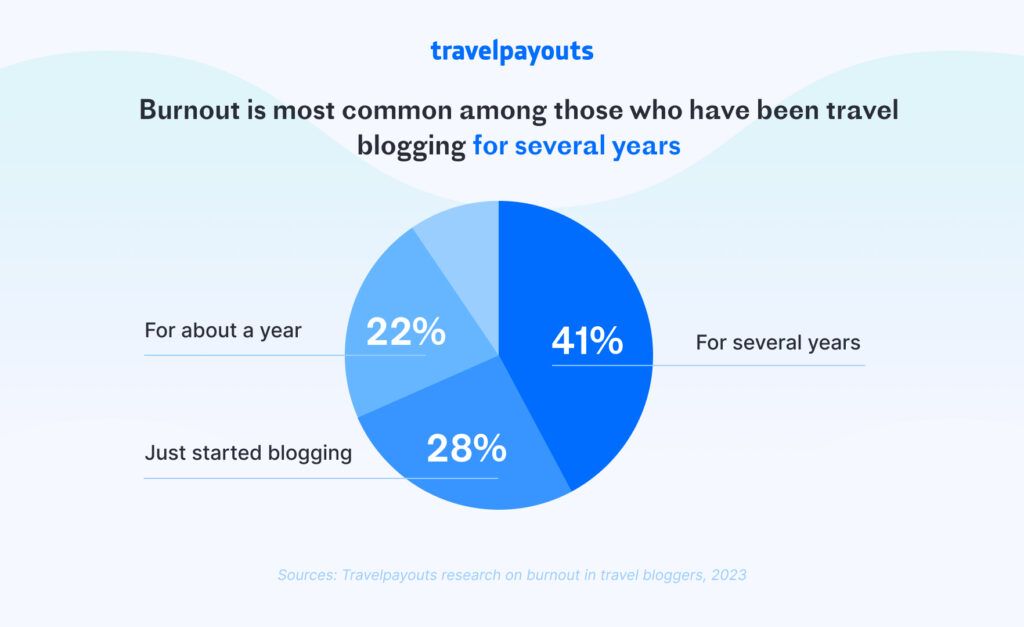
Causes
Why do bloggers feel blogxiety at all? It can be triggered by different life experiences, such as:
- Comparing themselves to successful bloggers, reported by nearly half of the respondents as a factor in making them feel discouraged.
- Getting overwhelmed from social media use. Over 42% of those surveyed struggle to manage multiple platforms – maintaining an active online presence alongside other demands is really difficult.
- Having limited knowledge of blog development, design, and monetization. 32% of travel bloggers reported this issue, which puts the need for better resource-sharing in stark perspective.
Here’s the full list of bloggers’ most common pain points:
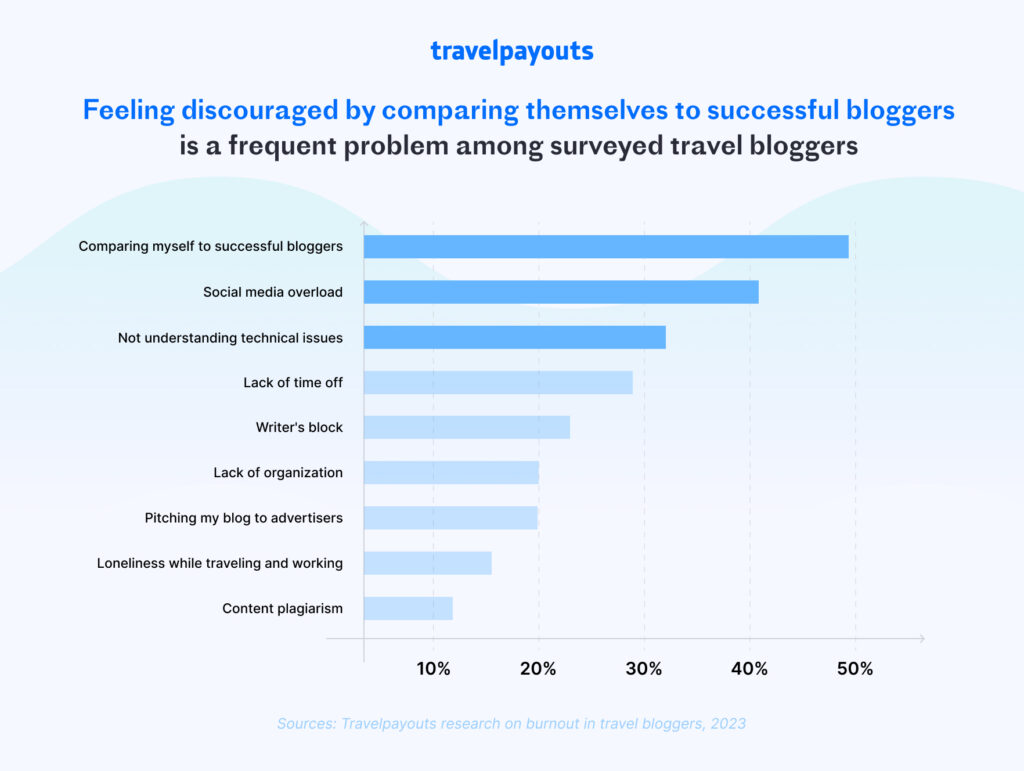
These issues cause sadness, a lack of motivation, and even anger – all common aspects of blogxiety.
Ideas for Coping
Delegating has been identified as a potential solution: in Travelpayouts’ study, bloggers said they would like to have someone help them with challenging or routine responsibilities. For instance, they’d welcome a hand with website tech support (considered the most unpleasant task by 50% of respondents), inserting affiliate links (35%), and researching and integrating keywords (30%).

Flic Taylor is a burnout coach, writer and podcaster. She believes burnout thrives on a foundation of self-neglect since many busy ambitious people so easily (and often) stop prioritizing and caring about their basic needs (rest, sleep, nutrition, and exercise) when they get distracted, which leads them to a place where they quit tuning into the things that bring them slices of daily joy.
“Burnout leads to isolation and loneliness, making it easy for travel bloggers to forget they have autonomy over their time and what they choose to be available for. Maybe you, too, find yourself saying yes to everything despite depleted energy levels to feel a sense of connection and relativity?
Burnout recovery always begins in the parasympathetic nervous system (the rest and digest response), so hitting the pause button regularly and getting some good rest and sleep is paramount.”
Flic suggests the next step in tackling burnout is to look at your daily patterns and habits. “Old keys won’t open new doors, so to create positive change in your life, you must look at how people-pleasing, belief systems, personal success metrics, and little self-love impacts your choices. Once you feel your energy levels rise again, make it non-negotiable to schedule time to do things that soothe, light you up, and bring more joy to your days.”

